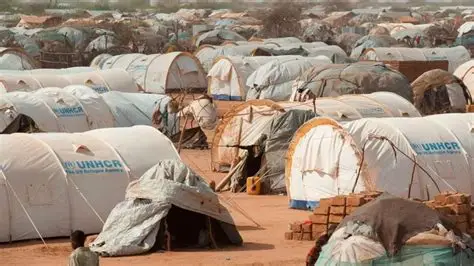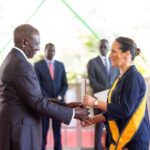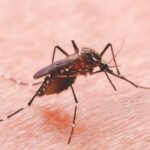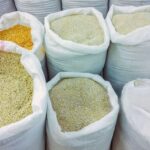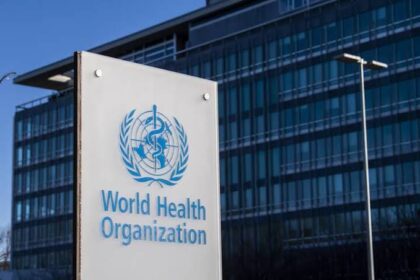Dadaab refugees face hunger as Aid dries up. A U.S. executive order issued in January 2025 has cast doubt on the future of aid dependent communities after funding under USAID was frozen.
New findings published in The Lancet warn that President Donald Trump’s drastic cuts to international humanitarian aid could lead to more than 14 million avoidable deaths globally within five years.
Due to major funding cuts, the World Food Programme (WFP) announced in June 2025 that it was suspending the ‘Bamba Chakula’ e-voucher system. Left thousands of refugees in Kenya’s Dadaab camp facing extreme hunger and a growing risk of unrest.
In response, Abdullahi Mire, founder of the Refugee Youth Education Hub (RYEH), is working to support the community through education, skill-building initiatives. And also awareness campaigns aimed at equipping refugees with tools for resilience.
Mire reports that conditions in the camp have deteriorated sharply, with many families going days without food.
“In just three months, the rations have been slashed to a quarter of what they were. People are dying in stampedes just for a chance at a meal,” he says, recalling the tragic death of 29-year-old Khadija Noor, who lost her life in April 2025 during a food distribution scramble at the Ifo1 and Ifo2 centers.
Rations to Ruin
The suspension of the ‘Bamba Chakula’ program by the World Food Programme (WFP) in June 2025 has deepened the humanitarian crisis in Kenya’s Dadaab refugee camps, where thousands now face worsening hunger and uncertainty.
‘Bamba Chakula’, a Swahili Sheng phrase meaning “get your food,” was launched by the WFP as an innovative e-voucher system. Purpose to allow refugees purchase food from selected markets within the camp. The system aimed to provide more dignity and flexibility. Hence, enabling recipients to choose food items instead of relying solely on traditional food aid handouts.
However, despite its promise, the program criticized for providing meager support. Over time, the value of the e-vouchers steadily declined, undermining its impact. Dadaab Refugees Face Hunger as Aid Dries Up. In March 2025, the voucher was worth just $6 per person per month. By May, it had dropped to $4 — before being abruptly discontinued in June due to massive funding cuts, particularly from the United States.
Hope for the future
Abdullahi Mire, founder of the Refugee Youth Education Hub (RYEH) in Dadaab, has been vocal about the worsening conditions. He says that while the program was far from perfect, its absence has left families in a desperate situation.
“The ‘Bamba Chakula’ program wasn’t even a big help. It was more of an organizational bandage, if I may say so,” Mire remarked. “Realistically, how can someone survive on less than 8 dollars a month? It wasn’t much, but now, without it, families are worse off and are starving.”
Also read:
42,000 KCSE Students Miss University Placement
Kenya, UK sign Ksh.427B deals to boost trade and investment
Mire noted that hunger levels in the camps have escalated rapidly in recent months. The dwindling value of food vouchers pushed families to the edge, and now the total suspension has triggered a full-blown food crisis. Community reports indicate growing unrest, malnutrition, and even deadly stampedes at distribution points.
Aid organizations and local leaders continue to urge global donors to reverse funding cuts. As well as restore life-saving programs like ‘Bamba Chakula’, warning that without urgent action, the situation in Dadaab could spiral into a humanitarian catastrophe., source AFP.

